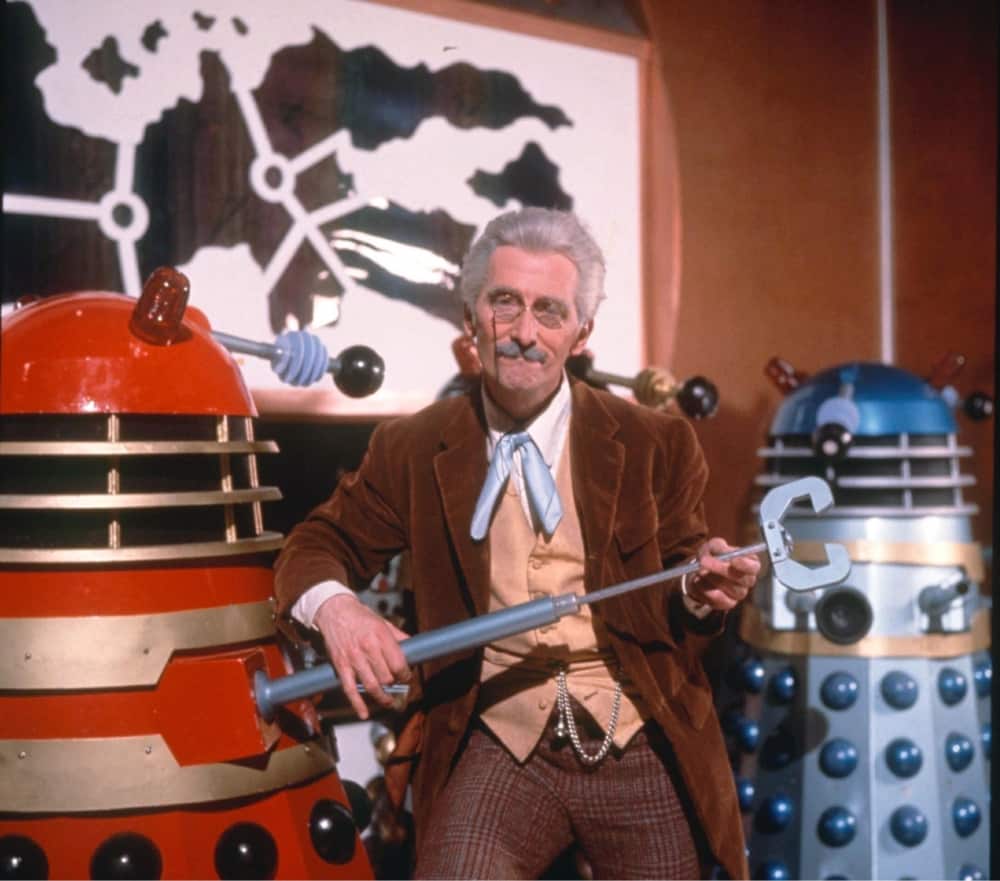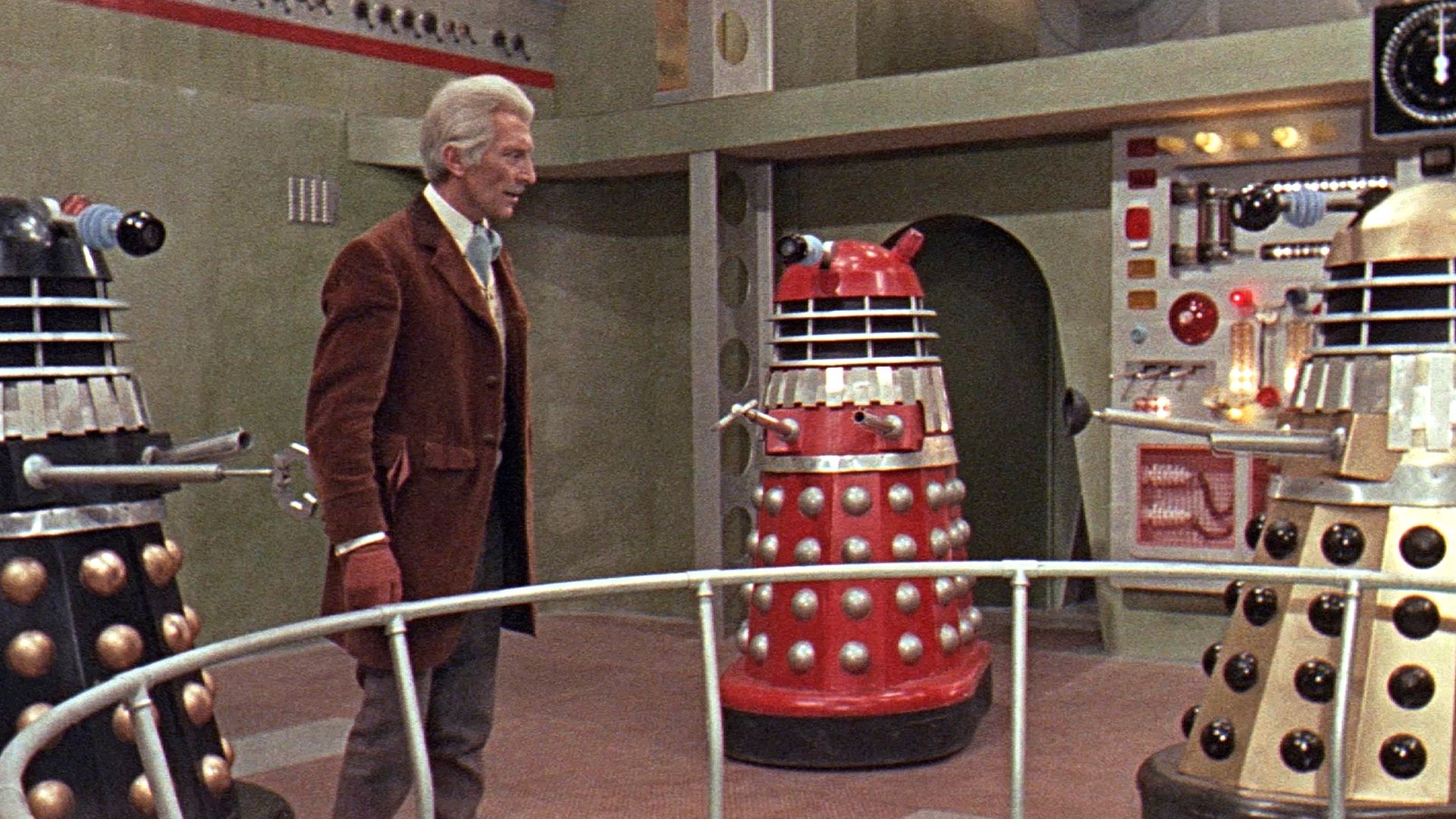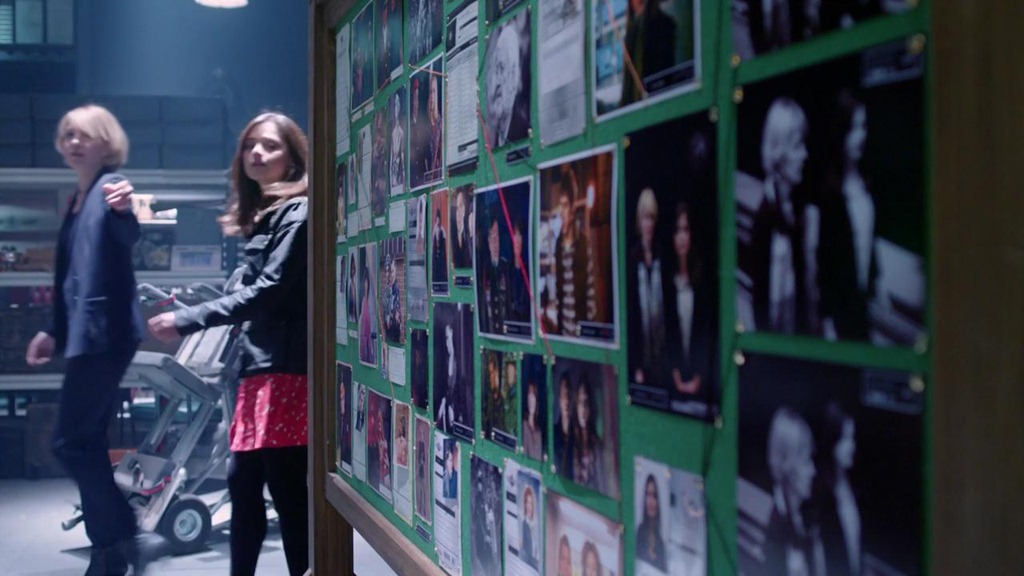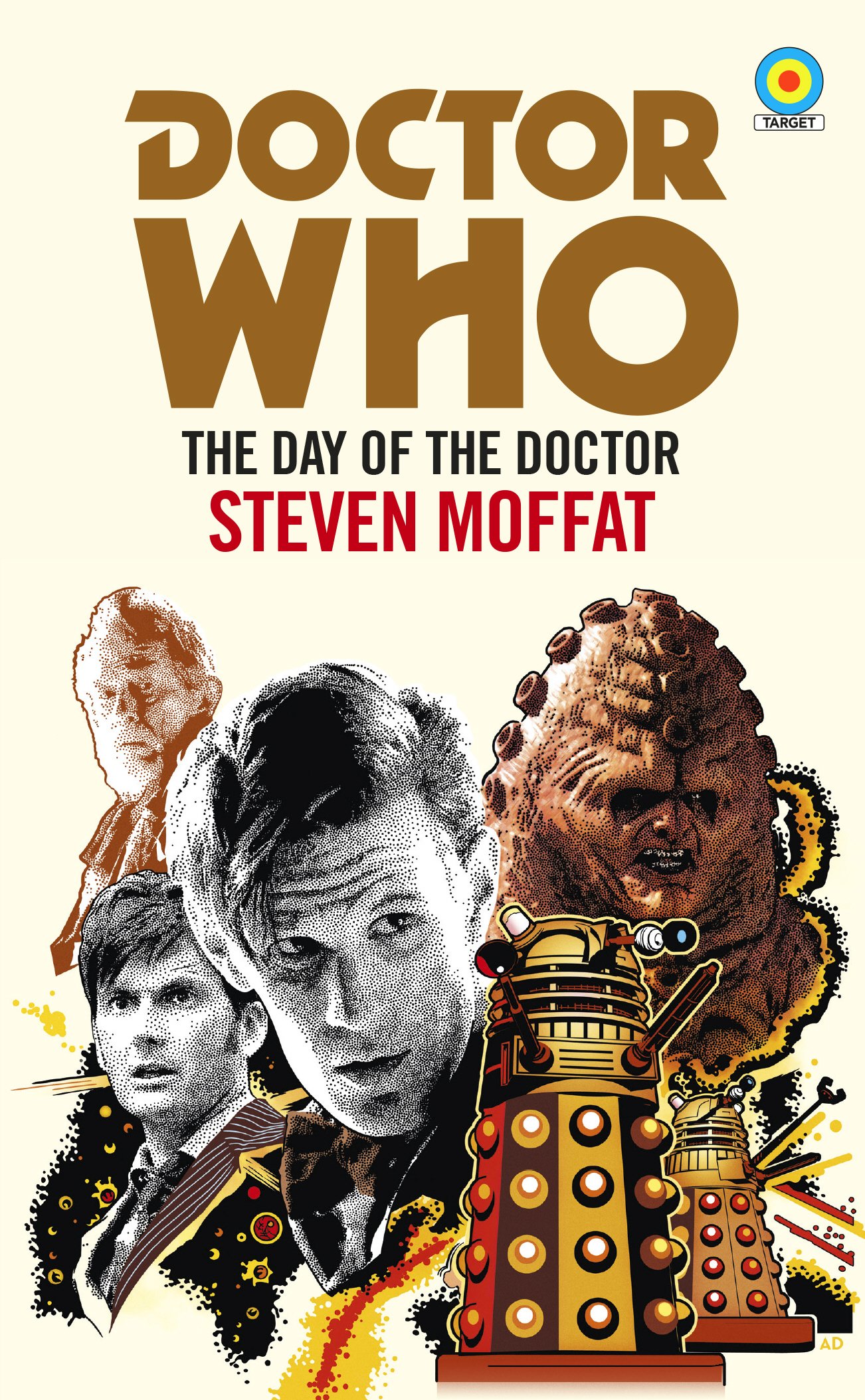The Dalek movies are something of an anomaly in the Doctor Who universe. With a brand new Doctor in the shape of Peter Cushing (along with his home-made TARDIS) is there any way they can be fitted into the main Doctor Who canon?

The Dalek movies arrived in the 1960s at the peak of so-called Dalek Mania. The metal mutants from Skaro had proven such a big hit that the BBC decided to give them their own film series, and in 1965 the production company Amicus bought the rights to produce their own Dalek movies based on three of Terry Nation’s stories – ‘The Daleks,’ ‘The Dalek Invasion of Earth’ and ‘The Chase.’
Of course, ‘The Chase’ sadly never went before the cameras, but the first two were released in 1965 and 1966 respectively. The first of these was Dr. Who and the Daleks and starred Peter Cushing as the famous Time Lord. If, indeed, we can call him a Time Lord.
You see, the Doctor in the Dalek movies comes with his very own backstory. In Dr. Who and the Daleks, he is portrayed as an eccentric British inventor, who has built a time machine in his yard. Called the TARDIS, his invention is built into a police telephone box and is significantly bigger on the inside than it is on the outside. (Sound familiar?) After it is inadvertently activated, the Doctor and his two granddaughters Susan and Barbara (along with Barbara’s boyfriend Ian) are whisked off to the home planet of the Daleks – at which point, the basic plot from the original Dalek story takes over.
Obviously, this is a very different origin story for the Doctor from the one viewers would have been familiar with. In ‘An Unearthly Child,’ the Doctor has only one granddaughter – Susan – and they have landed in present day London after coming from “another time, another world.” They are simply wanderers, having been cut off from their own people. It is not explained how the Doctor came by his travelling machine, although it seems unlikely that he invented it as he struggles to control it properly. (We later find out, of course, that he stole it in order to escape Gallifrey.)
For this reason, it is very hard to fit the Dalek movies into the Doctor Who canon. Giving Peter Cushing a timeline that matches up with Hartnell’s seems almost impossible. Even if one argues that Cushing’s Doctor could have had all these adventures before the First Doctor (and maybe lied about his true identity, and the identity of his “granddaughters”) it is almost impossible to think that he could repeat these adventures within the same timeline. If that makes sense.
So does this mean that the Dalek movies are nothing but a strange blip in the Doctor Who canon? Not necessarily. The obvious solution would be the parallel universe theory – as in, these adventures really happened, but featured a different version of the Doctor from a different universe. In this reality, anything is possible – and yes, that does mean that (in theory) a Big Finish box set featuring the return of Cushing’s Doctor (co-starring David Tennant and Paul McGann, obviously) is entirely possible. But will River Song have a record of his face? The speculation begins here.

Moreover, there is already a link between the Dalek movies and the main television stories – albeit a tenuous one. In Dr. Who and the Daleks, Cushing’s Doctor identifies himself as “Doctor Who,” rather than simply “the Doctor.” And this name is repeated in the 1966 story ‘The War Machines,’ where the corrupt WOTAN declares that “Doctor Who is required” and orders that he be brought immediately. Furthermore, the 1970 story ‘The Silurians’ is canonically titled ‘Doctor Who and the Silurians’ (probably because of a production error, but still) and then we have Missy telling Bill that the Doctor’s true name is Doctor Who in the 2017 episode ‘World Enough and Time.’ Phew.
So Cushing’s Doctor could, indeed, exist somewhere within the reality of the TV series – perhaps in a parallel universe or even (brace yourselves) within the main universe of the series itself. The 2020 episode ‘The Timeless Children‘ certainly left this possibility open.
And believe it or not, the idea that the Dalek movies could belong in the main canon is not as crazy as it sounds. In 2013, the Doctor Who showrunner Steven Moffat had a plan to feature the Dalek movies in the 50th anniversary special. They were going to be included as posters which were being stored in the Black Archive – the secret UNIT repository that Clara visits.

The thinking behind this was that the Dalek movies could have been made by people who had heard about the Doctor’s adventures and wanted to make films about them. So these could have been former companions, or even colleagues from UNIT. Indeed, this would have neatly explained why Cushing’s Doctor didn’t match up with all of the others; he was a fictitious version, created by people who didn’t understand where he really came from.
And Moffat would have gotten away with it if it hadn’t been for the budget. Apparently, the only thing that prevented this from happening was the licensing costs; getting permission to feature the posters from the Dalek movies was too expensive, particularly as they would only have been seen for a few seconds.
That being said, Moffat did manage to include them in his Target novelisation of ‘The Day of the Doctor.’ Now all we need to decide is whether the Target novels are canon. Good luck, internet.

But personally, I think Moffat’s explanation is the best one. It canonises the Dalek movies in a way that makes sense (to me, anyway) and opens the door to other story possibilities down the line. I love the idea that we could, one day, have a story where the Doctor essentially sits down to watch Doctor Who, or even hides behind the sofa as the dreaded Daleks burst onto the screen. Now that would certainly melt the Matrix.
But how do you think the Dalek movies should be canonised, if at all? Let me know in the comments below.

TARDIS scarf – order now from the Lovarzi shop!
Shop on Amazon
Latest posts…
- Do Doctor Who fans object to ‘new things’?
- Will Doctor Who The Collection include the earliest seasons?
- The greatest Doctor Who sequels
- Doctor Who Season 21: Was the Myrka really that bad?
- Resurrection of the Daleks: blood bath or bona fide classic?

History has been changed and needs to be reset. Fortunately the TARDIS knows this. As she said in the doctors wife I take you where you need to go not where you want to go. I hope I got the episode right as I am winging this without research. Using the chameleon arch she changes the doctors lifetime memories. He must save earth so he becomes a human with family but no memories of previous lives or of Gallofray. Did I mention that the chameleon arch can change your physical appearance as well as your mental reality. The history change was the origin of the Daleks and what they would do to our earth so as a scientist from earth with family he now has reason to reset the timeline. It will change to the one we know on the show. As we know the TARDIS interior constantly changes so that is not an anomaly. Unfortunately we have only seen the first two episodes of this reality so still need to see how the doctor and his companions defeat these Daleks and reset the timeline. After the reset the TARDIS again uses the chameleon arch to return all of the doctors memories. Whether she allowed the doctor to keep these memories is another question(the fugitive doctor anyone?) have been following the doctor for many years as he started must after my family emigrated from Scotland to the U.S. My first taste of the doctor was a novel my parents brought back from their first trip back and my second was the first Peter Cushing movie.